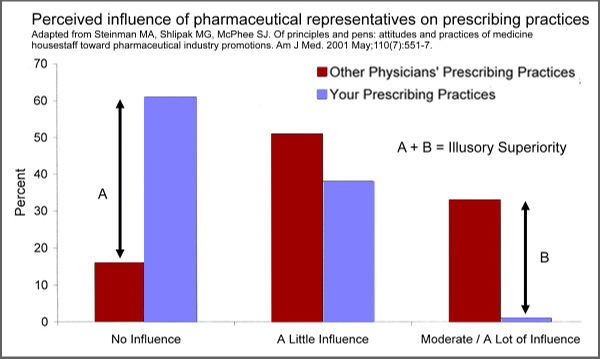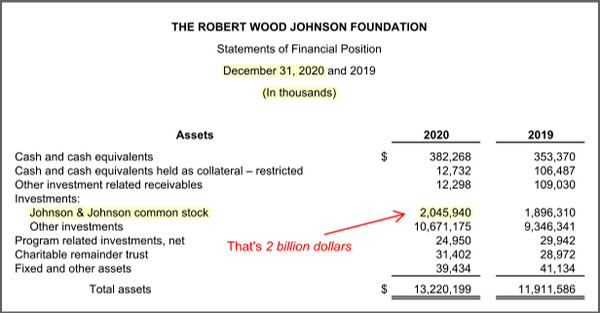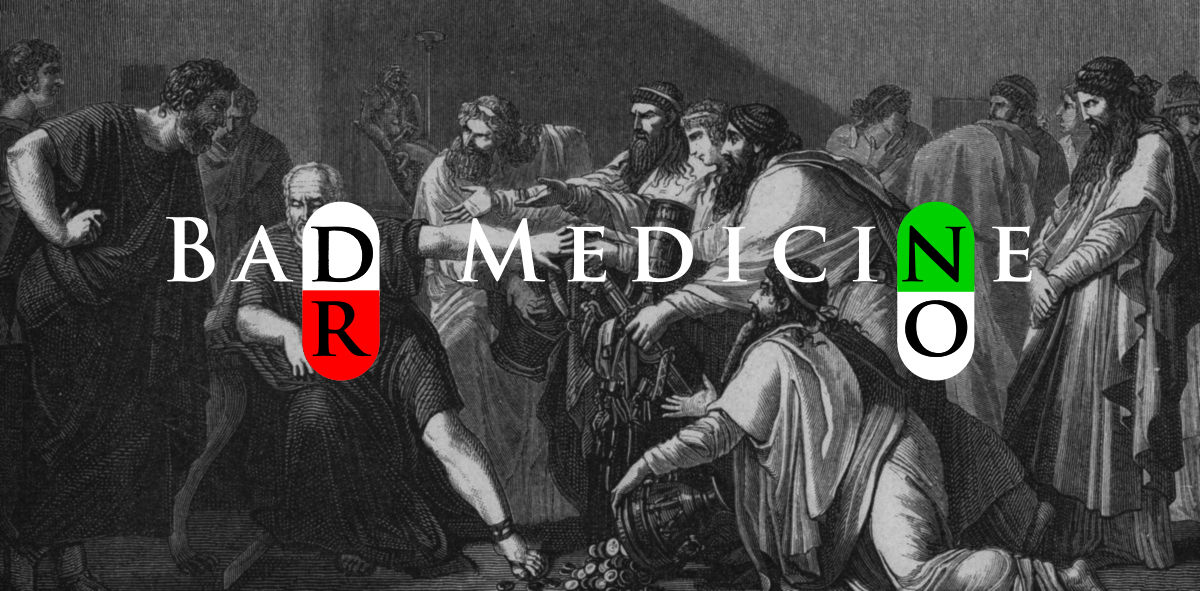Pay Checking the Fact Checkers

Who pay checks the fact checkers? A intriguing post by a Bad Medicine reader led to information on facebot, of all places, suggesting that a vaccine manufacturer funds factcheck.org, facebot’s fact checker, so Dr No decided to follow the money, and dig deeper. What he found is interesting, in the faux-Chinese way. In the three months ending on 31st March 2021, factcheck.org received $53,501 from a health foundation that has over $2 billion invested in Johnson & Johnson, the pharmaceutical giant and leading covid–19 vaccine manufacturer. Specifically, the $53k grant funds factcheck.org’s SciCheck’s COVID-19/Vaccination Project, which aims to “to increase exposure to accurate information about COVID-19 and vaccines, while decreasing the impact of misinformation.” An independent fact checking organisation with a mission to debunk vaccine misinformation, funded indirectly by a vaccine manufacturer. What could possibly go wrong?
The Robert Wood Johnson Foundation (the clue is in the name, RWJ was president, then chairman, at Johnson & Johnson for almost 30 years), the health foundation that funds the SciCheck’s COVID-19/Vaccination Project, are to be commended for their transparency. So to are the other players. Factcheck.org on its funding page declares the funding (“We also received $53,501 from the Robert Wood Johnson Foundation. SciCheck’s COVID-19/Vaccination Project is made possible by a grant from the Robert Wood Johnson Foundation”) and SciCheck says right at the top of main page “SciCheck’s COVID-19/Vaccination Project is made possible by a grant from the Robert Wood Johnson Foundation”. The Foundation publishes its accounts (Exhibit A), and they confirm over $2 billion invested in J&J on 31st December 2020. With a current dividend yield of around 2.5%, that’s good for an annual income of around $50 million.

Exhibit A: Extract from the Robert Wood Johnson Foundation accounts
This degree of transparency is praiseworthy, but those involved are at the same time guilty of naivety. Naturally, the fact checkers are at pains to establish their editorial independence. SciCheck, on it’s Commitment to Transparency page goes further (Massie is a Kentucky Republican who alleged bias): “Contrary to Massie’s suggestion, the Robert Wood Johnson Foundation — as is the case with all of our funders — has no control over our editorial content. Period. Full stop”. But there is a problem: he who pays the piper does call the tune. Money really does talk, or rather, it whispers in your ear, and flashes subliminal images in front of your eyes. Any one of us may like to believe we are better than average, unaffected by funding, or gifts, or whatever mask the pharma dollar adopts, but numerous studies (see refs 2-5 and 6-11 in this paper) have shown, for example, that while doctors believe they are uninfluenced by drug reps bearing gifts, the reality is that they are influenced, and prescribing behaviour changes in favour of the drug company. Period. Full stop.
This influence operates at a subliminal level, even in those who believe they are not affected, as does the illusory superiority that accompanies it. Most drivers may believe they are better than average drivers, just as doctors believe that they practise on a higher plane, and are immune to pharmaceutical influence, unlike their peers. In one study of junior doctors, most respondents (61%) believed they were untouchable by the pharma dollar, while a big majority (84%) of the same group believed that other doctors are influenced (see post image above). By the same token, fact checkers can believe, even genuinely believe, that they are editorially independent, even as they are subliminally influenced by the source of their funding. The effects are ubiquitous, so much so that we don’t need a fact checker to convince us that fact checkers are not and cannot be miraculously immune to these universal effects. Rather than rely on illusory superiority, the fact checkers need to get real, check the facts on human behaviour, and accept that they too are human, all too human. God may work in mysterious ways, but dollars work in well known, well understood and very predictable ways.

Interesting Dr No…
What is the meaning of the picture on the top of your blog (under Bad Medicine) ?
The left hand of the main character and his face (who is he ?) seems to refuse some gift. What does it represent ?
Jon Be – You are correct in what you see in the picture. Google Hippocrates and the Persians… But it isn’t about refusing gifts from Big P to avoid undue influence, it is quite a different story.
Thank you for the correction.
” Hippocrates And Artaxerxes(c.460-377 or 359 BC) The Greek physician Hippocrates refusing to accept gifts offered by Artaxerxes, king of the Persians and enemy of the Greeks, to help cure a plague that was ravaging Persian troops. This story, now considered to be a piece of biographical fiction, became a popular legend in antiquity and was cited by Plutarch, Galen and Stobacus. Hippocrates refusal to help can be interpreted either as a patriotic act or, in line with his association with the Hippocratic Oath, a detachment from material gain and reward.”
Is there a line to draw (and if yes, where) between engaging in a patriotic act (what is the real purpose of this patriotic act ?) and the decision to stay away from any kind of corruption that could affect our integrity ? As a doctor, as a lawyer, as a journalist, as a citizen…
Howard Zinn wrote : “Historically, the most terrible things – war, genocide and slavery – have resulted not from disobedience but from obedience”.
Are we, in the actual context, possibly doing collectively “Bad Medicine” (to refer this time to the text on the picture :) ?
Not a correction, more a pointing in a direction!
Whether myth or historical fact, the scene shown in the painting raises interesting questions. Dr No has always taken the generalised Hippocratic position to be we treat all comers, without fear or favour. Dr No should treat the terrorist as well as the terrorist’s victim, but that is a very simplistic position. What if there are two seriously injured patients, one a terrorist, the other a victim, but only one doctor? Should the doctor allocate his time equally, but inadequately, between both, and have both die? If he decides to save one life, and let the other die, how does he decide which one? Perhaps the terrorist wasn’t a terrorist, but a freedom fighter?
The simplest, and 100% effective, way of avoiding accusations of bias is not to accept freebies or funding. If there is no instrument of influence, then there can be no influence.
‘An independent fact checking organisation with a mission to debunk vaccine misinformation, funded indirectly by a vaccine manufacturer. What could possibly go wrong?’ Not a lot in their eyes, but a great deal in ours.
Well sleuthed, Dr No (in every way), and thank you for the much needed data and words; one of the most dangerous things of these times is the rampant – and I reckon now desperate – censorship of anything which threatens to shine a light on the many, many nefarious doings of many, many people within many, many companies.
Yet still the people believe.
Gaslighting/abuse awareness takes the time it takes, but observing its continuing damage is heartbreaking. (And concerning when being sucked into its tides by having to sail the same one ocean as those not yet aware.)
“Perhaps the terrorist wasn’t a terrorist, but a freedom fighter?”
One of the daftest cliches of our time is to contrast a terrorist and a freedom fighter. You might as well contrast apples and Tuesday.
Terrorism is a technique, freedom is an aim (or purported aim, at least). So you can be both a terrorist and a freedom fighter (like Mandela), a freedom fighter but not a terrorist (like Martin Luther King), a terrorist but not a freedom fighter (enter examples of your choice), or neither (like most political actors).
Anyway, change your example. One patient is a girl who was raped and assaulted; she’s near to death. The other is her rapist, beaten almost to death by a mob before the police rescued him. So: politics has been removed from the comparison. What is your decision now?
P.S. the poor girl reminds you strongly of your own daughter. Does that influence your decision? How could it not?
Isn’t the answer triage rather than an emotional / social contest?
Drs are (should be) trained to assess quickly the likelihood of a positive outcome in a given situation using the resources available… Surely, if a life can be stabilised for sufficient time then it’s likely more resources can be brought to bear to give a better outcome?
And if both patients are in approximately the same condition? Presumably one works on both as best one can, given an objective of saving lives. Society has other systems available for apportioning blame for wrongdoing and suchlike, so surely one’s choices should be based on medical assessment?
Dearieme – point taken about sloppy use of a broken cliche, but the point Dr No was trying to make is that moral judgements are part of this, which the rapist/victim example doesn’t cover in the same way. So make the example WWII, the person who causes the injury a French resistance fighter, and consider how a German and then a French doctor might act. They should act the same – they are both doctors following the same moral code – but one rather knows they probably wouldn’t (with noble exceptions of course).
Yes, the likeness to a daughter (or any family member) will have a strong effect (Dr No has been there, in other clinical circumstances) and the secret is to be aware of the effect, and incorporate that awareness into any decision making.
Carolyn_f – Dr No meant two equally seriously ill patients, say both will die within the hour if not operated on immediately, sorry for not making that clear. Triage only kicks in when severity varies, say into those too badly injured so survive, so just keep comfortable, those badly injured but there’s a good chance of saving them if treated now, so they get treated, and the walking wounded. These are medical assessments, and will (normally) fully trump any moral decisions. The dilemma Dr No was trying to evoke is one where the two patients are in all aspects medically equivalent, so the decision becomes a moral judgement.
We risk making these moral judgements all the time. Age, lifestyle conditions (a particularly nasty and toxic habit, which Dr No usually deals with by pointing out to advocates that there are a lot of diseases that have a lifestyle element, so maybe the advocate’s MND/worn out joints/whatever was caused by his past athleticism, and so by his own system, no treatment for him), you name it. Dr No has always tried (but like Matt Hancock, no doubt failed) to treat patients as moral equivalents. It is not our job as doctors to judge people, but to treat the patient in front of us.